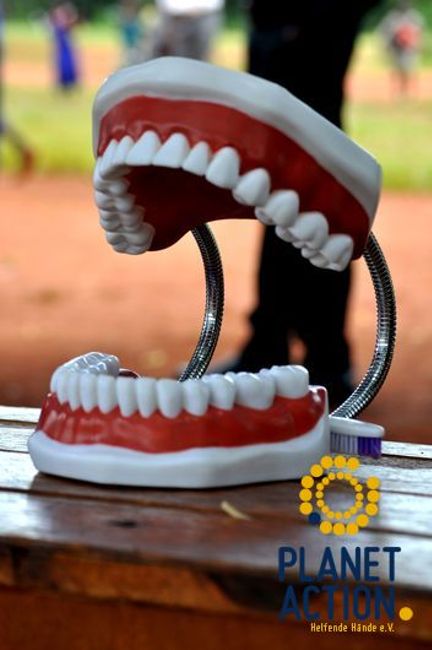9./10. Tag Montag/ Dienstag
Publikuar: 14.08.2018
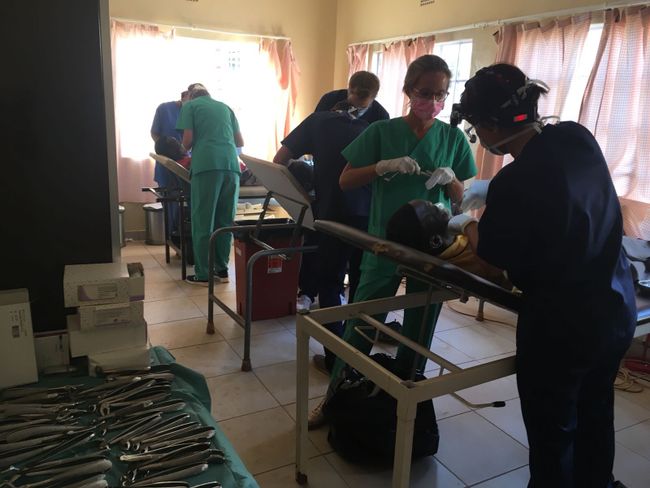
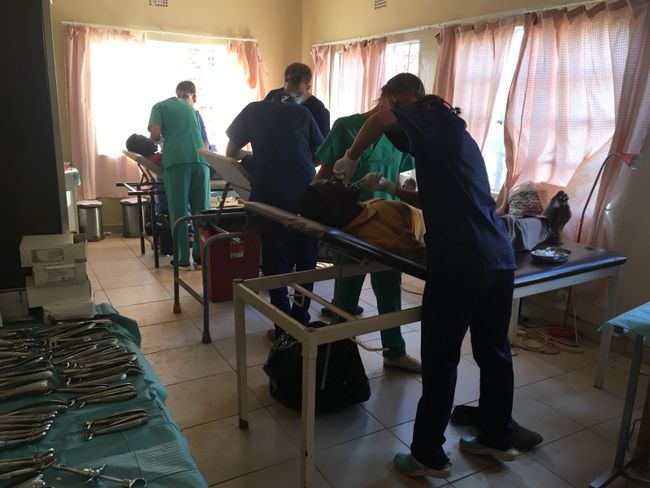
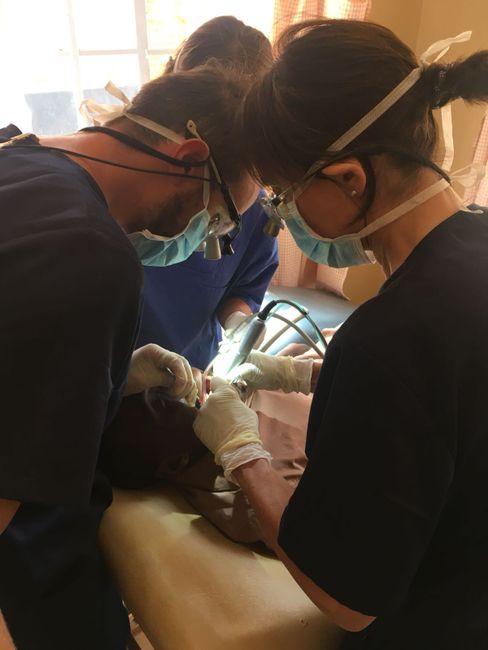
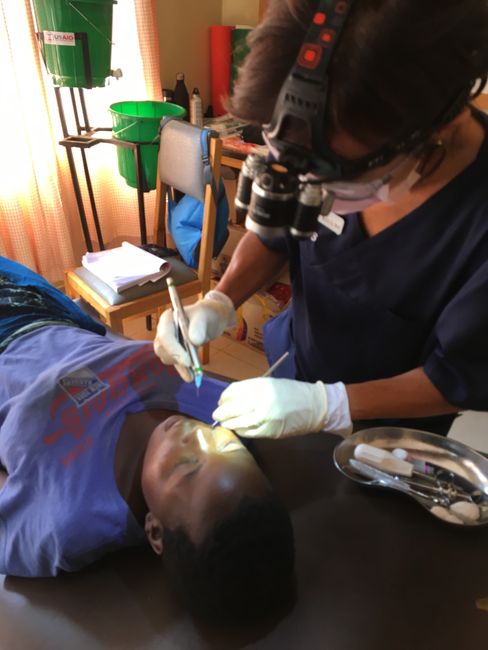
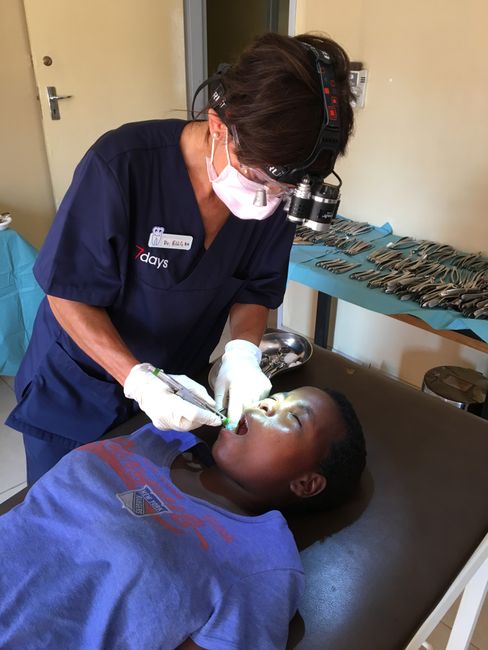
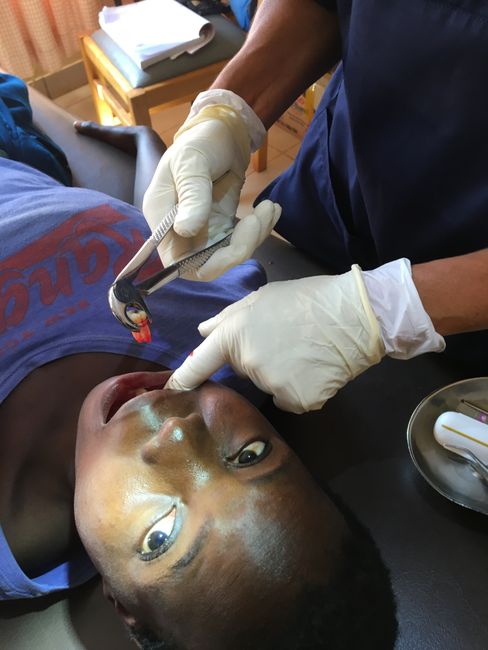
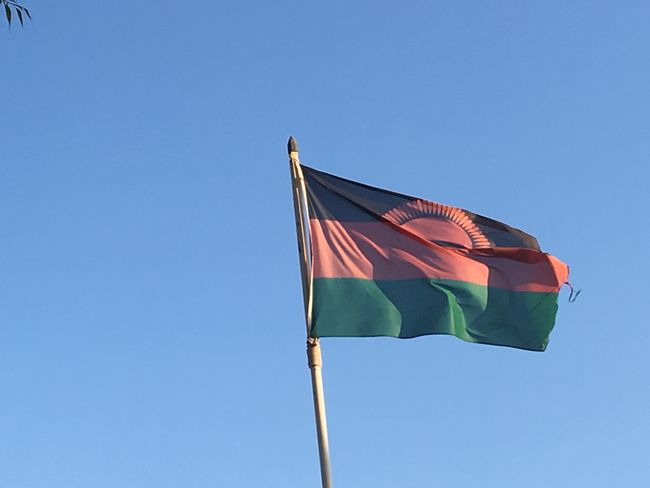
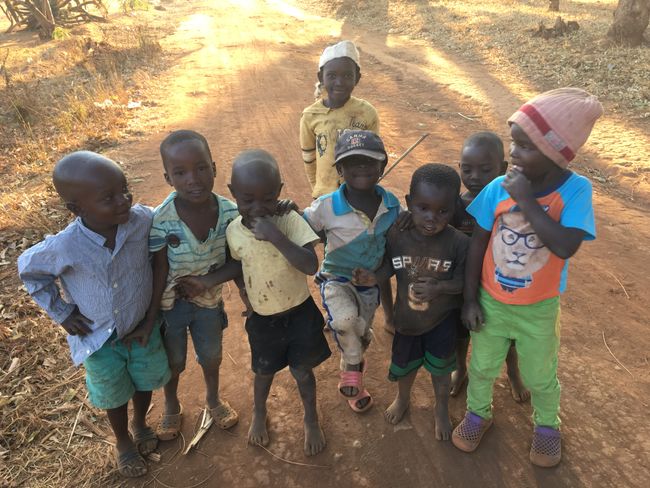
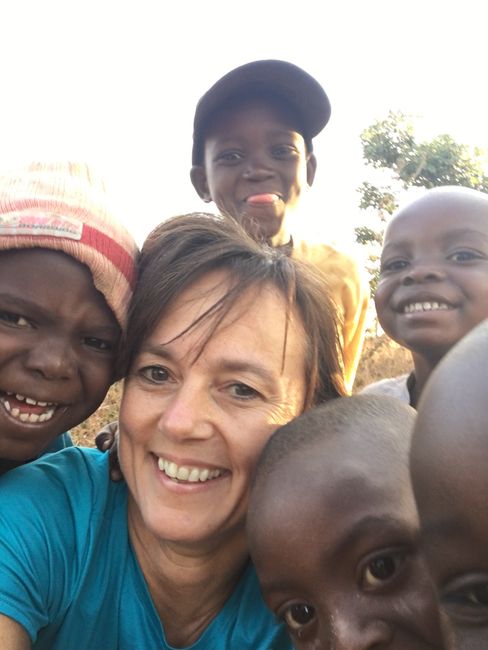
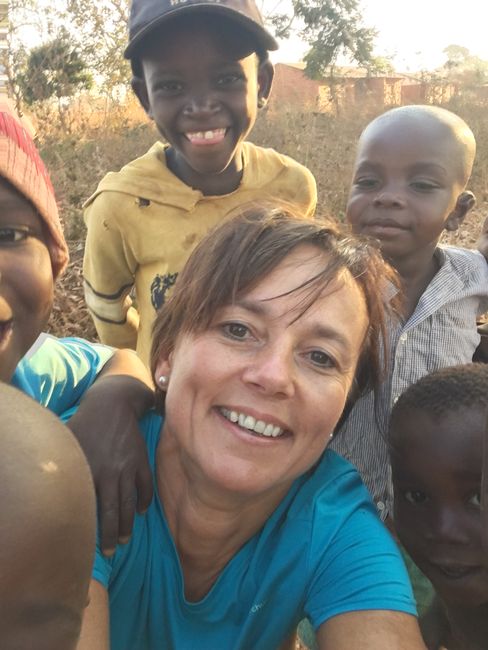
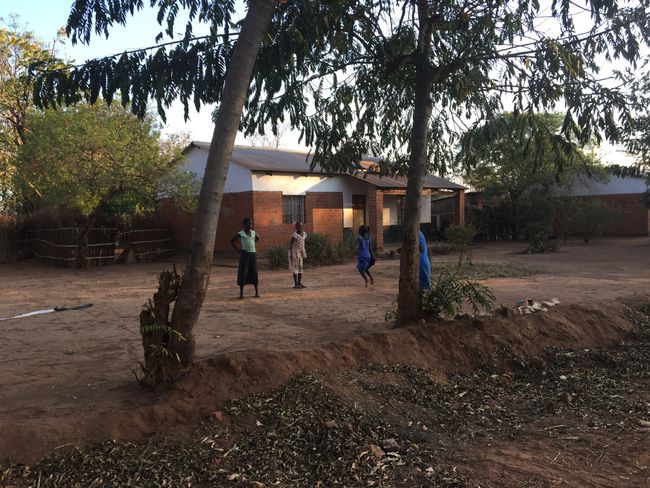
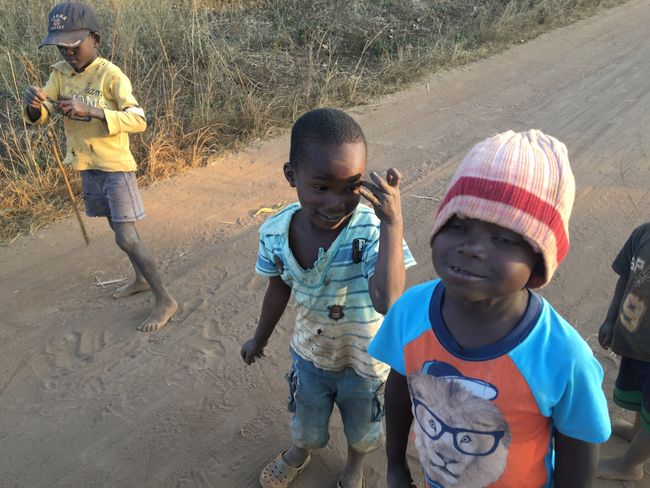
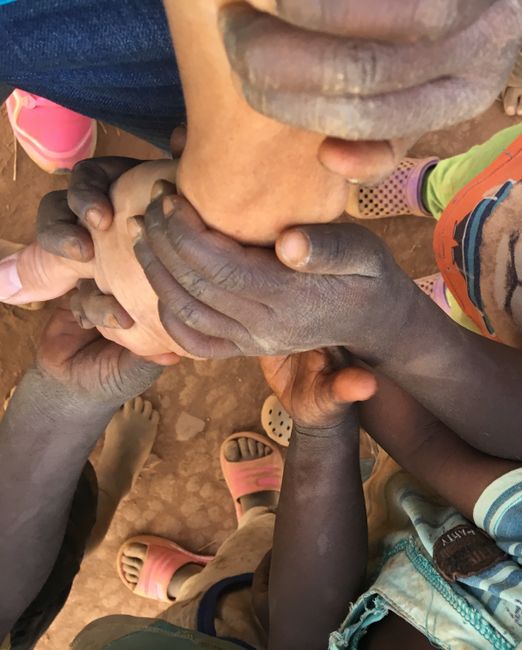
Regjistrohu në buletinin
Yesterday and today were 2 completely normal treatment days.
Yesterday we treated 37 patients alone, today there were a bit fewer.
Over 90% of the patients suffer from periodontitis because they brush their teeth very irregularly and tartar is never removed. Many of them don't even have a toothbrush. Unfortunately, there are only very basic toothbrushes available to buy in the village (like our disposable toothbrushes).
The oral hygiene of most patients is very poor. 😬
Caries is also widespread, but since the sugar consumption is not as high as ours (except chewing sugarcane), it is only the second most common disease. Most patients come and say exactly which tooth/teeth they want to have extracted.
We have learned a few phrases in Chichewa.
Tsekulani - open your mouth
Tsekani - close your mouth
Kuwawa - pain
Lavula - spit
Muli bwanji - how are you
Zikomo - thank you
The treatment usually goes like this: Patient comes - takes off their shoes - lies on the bed - Kwawa - the patient points to the painful teeth - after a brief examination, the treatment is determined - the translator explains the treatment, translates it - the patient agrees - the treatment starts.
Since we only have a mobile unit (cheap unit made in China), treating is very difficult. We do extractions in 95% of the cases.
Visibility is often limited because our headlamps are too weak and the patient cannot be properly positioned.
In addition, there is often heavy bleeding and we cannot suction properly, so the patient has to spit into a bucket several times during the treatment. Afterwards, they are provided with gauze and painkillers and sent home. Lately, we also give out toothbrushes and toothpaste from our donations.
You have to be very frugal with medication here, otherwise, they will be resold. The dosage of antibiotics here is also only half as high as in Germany.
(1500 mg Amoxi/day or Ibuprofen 200 mg)
The smell in the treatment room is sometimes extreme. Unpleasant periodontal disease odors mix with body odors. There are no deodorants here. You are glad if you have the face mask tightly around your nose and the windows are open.
Afterwards, the used instruments are disinfected in a chlorine solution by John and then sterilized.
Tonight I took a little evening walk.
(I can't walk or play soccer at the moment)
When I passed the soccer field, a group of small boys suddenly ran towards me from a distance. They called Azungo, Azungo and surrounded me. They talked and laughed, touched my hand, and wanted to accompany me. They think it's great when you take pictures of them and they can see themselves on the mobile phone screen. Wonderful, warm-hearted, friendly, affectionate children!!!!
Of course, I had to take some photos and videos.
One boy had a top made from a piece of wood with a stick and a string. He twisted the string around the top and pulled it so that the top would spin, and then he hit the top with the stick to make it spin more. It immediately reminded me of the toys my father (Grandpa Heinz 😊) used to tell me about during the war. Then I saw 3 girls jump rope and another little boy proudly ran around with a homemade kite (made from trash bags and 2 small wooden sticks). Soccer balls are also made here from old paper or plastic and then wrapped with string. These children don't know toys, but they still don't get bored. They always play outside with all sorts of things and never alone.
Regjistrohu në buletinin
Përgjigju (1)
Edith
Hallo Ellis, wir lesen begeistert deine spannenden Berichte!!! Zuerst war mir nicht klar, dass du selber schreibst, daher gab ich noch keinen Kommentar ab. Vielen Dank, dass wir mitlesen dürfen und wir wünschen dir noch viele herrliche Erlebnisse und bewundern dein Engagement!!!!
Herzliche Grüße von Edith und Rolf
